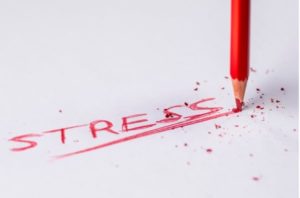
Blame it on work, home life, COVID… but, could it be anxiety?
Feeling tired is one of the symptoms of burnout, and boy, does an overactive amygdala cause you to feel burnout quickly. We will get into the biology of anxiety in a bit, but answer this. How long have you felt extra tired? When did you start feeling this? Last March when quarantine started? Or was it recently or even earlier?
Diet– are you getting enough calories? Too many? Are you eating a lot of carbs and sugar, causing you to have sugar highs and then crash?
- Vitamin deficiency– Are you up-to-date with your physicals and blood work? Perhaps you’re low in Vitamin B?
- Lack of sleep– Are you getting 8-9 hours of good, uninterrupted sleep?
- Overweight– Being overweight causes you to have to work harder to do simple things.
- Sedentary Lifestyle– are you moving every hour or sitting?
- Sleep disorders– Rule out any sleep apnea or narcolepsy
- Fybromyalgia or Autoimmune disorders– Have you ruled these out with your doctor?
- Medication– Are you on any medication that causes drowsiness?
- Depression– Negative thinking can cause the brain to get overworked. This is similar to what we are about to cover… Anxiety.
Am I tired because of anxiety?
Anxiety is the body’s natural response to stress. We will never get rid of anxiety. However, too much of it can be overwhelming and debilitating. Let’s take you through a quick look at what causes us to feel anxiety.
The amygdala is our friend
Deep in our brains, we have a little organ called the amygdala. It is the fight, flight, freeze or “fawn” responder. It’s so helpful when we are in real danger. Back when we were cavepeople, it was the organ that kept us alive. When a sabre-toothed tiger came to eat us, the amygdala fired up and sent adrenaline and cortisol to our bodies to run fast, jump high, play dead, and RESPOND. It got us into fight, flight, or freeze mode… whatever it took to get away from danger.
Fast forward to today. Unfortunately, our poor little amygdalas have not developed much. It’s pretty primitive. It can’t tell when a tiger is threatening us or a email from our boss threatens us. It sends the same adrenaline and cortisol through our bodies to fight, flight, or freeze. And a fourth option “fawning”… or people pleasing.
Cool! What do I do with that biological mess? Well, it’s important to understand this is how our brains respond to threats. Small or big, it sends these hormones to get us out of danger. When it’s in front of a tiger or we need to slam on the brakes in the car to avoid an accident, great! Rock on amygdala!
But, more often than not, our threats are not threats like a tiger or a car accidents. It’s the day to day micro-threats, not enough time, not enough money, not enough self esteem, not enough confidence… not enough-ness.
So, we are left with all these extra hormones shooting through our bodies. And just like when you feel adrenaline or run fast from danger, you feel exhausted afterwards. Too much of it is not a good thing. We have too many hormones and not enough outlets to let them out.
Why do I feel tired from anxiety then?
Like I mentioned, we are experiencing too many hormones from little micro threats every day. So, our amygdala is overloading our systems. Our bodies are exhausted because of all the adrenaline and cortisol it gets constantly. It’s said that we get more stimulus in ONE DAY than people got their WHOLE LIVES 500 years ago!
That’s a whole lot of adrenaline and cortisol in one day!
How do I reduce feeling tired from anxiety?
Well, I’m a therapist, so I’d start by saying, “Get you a therapist!” But, if you can’t or are unable to, it’s simple. You have to convince your amygdala that what you’re experiencing is usually not a “tiger”.
What do I mean by that?
Well, in cognitive behavioral therapy, you learn to use your prefrontal cortex to challenge the irrational thoughts and feelings that are sent to and guided by your amygdala. You use your logic to reduce the hormones sent to your body because it is usually not a survival moment you are stressing over. You usually are not in life or death situations, so there is no need to have your amygdala overworking and sending those hormones when it’s something you can work through logically.
People who watch and read the news are constantly sending mixed messages to the amygdala that there is a threat. Stop that!
People who scroll mindlessly through social media and YouTube are putting their amygdalas through fight or flight response constantly. Stop that!
People who watch movies and shows that elicit fear or worry are putting extra worry on the amygdala! Stop that!
It’s simple, reduce your threats daily. Stress should be saved for logically stressful situations… parenthood, work, daily survival. NOT extra stuff. reduce the extra. It’s plain and simple.
If it’s difficult for you to let go of some of these things, anxiety treatment could help! Contact a therapist to help you.
References
- Always tired? 7 Hidden causes for your fatigue. (2017).
health.clevelandclinic.org/always-tired-7-hidden-causes-for-your-fatigue/ - Ellingson L, et al. (2014). Active and sedentary behaviors influence feelings of energy and fatigue in women. DOI:
10.1249/MSS?0b013e3182a036ab - How much sleep do we really need? (2018).
sleepfoundation.org/excessive-sleepiness/support/how-much-sleep-do-we-really-need - Mayo Clinic Staff. (2018). Fatigue.
mayoclinic.org/symptoms/fatigue/basics/causes/sym-20050894 - Mayo Clinic Staff. (2018). Sleep apnea.
mayoclinic.org/diseases-conditions/sleep-apnea/symptoms-causes/syc-20377631 - Mayo Clinic Staff. (2019). Stress symptoms: Effects on your body and behavior.
mayoclinic.org/healthy-lifestyle/stress-management/in-depth/stress-symptoms/art-20050987 - Sleep and tiredness. (2018).
nhs.uk/live-well/sleep-and-tiredness/

 Diet– are you getting enough calories? Too many? Are you eating a lot of carbs and sugar, causing you to have sugar highs and then crash?
Diet– are you getting enough calories? Too many? Are you eating a lot of carbs and sugar, causing you to have sugar highs and then crash?
